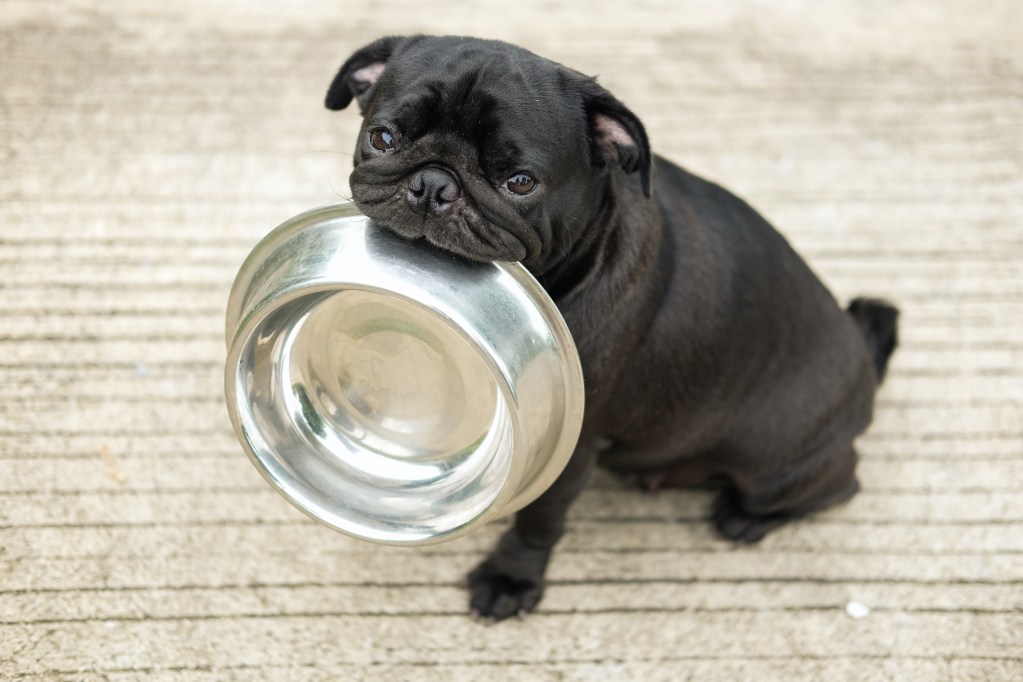Many of us enjoy eggs — on toast, in a quiche, or maybe the hard-boiled type. When you sit down to a plate full of delicious scrambled eggs, your dog might stare up at you, begging for a bite. But should dogs eat eggs? We have good news for both you and Fido: You can absolutely share this breakfast with your pooch (as long as you follow a few basic rules). The next time you decide to cook yourself a couple of yolks, consider frying one up for the fur babies as well.
Can dogs eat eggs? Should dogs eat eggs?

For the most part, yes, you can feel free to give your beastie an egg now and then. Eggs have lots of nutrients and are chock full of protein, making them a healthy snack for four-legged buddies. Remember that treats should only make up about 10% of a pup’s daily intake of food. The majority of the meals need to be just kibble (or other vet-approved dog food), specially designed with a canine’s system in mind. But extras are good when they’re low in sugar and carbs. Eggs certainly fit that bill.
One word of caution: Some dogs should not eat these nibbles if they have an underlying health condition, such as diabetes. Always talk to your vet before you add something to their diet.
Are eggs good for dogs?

In addition to protein, eggs contain lots of vitamins and antioxidants. While your pet probably gets what they need from their meals, it certainly can’t hurt to provide a little boost now and then, especially if it replaces a fattier or saltier treat. However, even a healthy snack needs to only be served in moderation. In this case, that means just one per day, and not every day. You shouldn’t add too many extra calories outside of breakfast and supper.
Can dogs eat raw eggs?

Overall, you need to steer clear of raw eggs and stick with cooked ones, just as you would do for yourself. For starters, these can give your little guy salmonella, and you definitely don’t want that. If you think your dog has eaten a raw egg, watch for signs of infection, like fever, vomiting, and diarrhea. Any symptoms will warrant a call to the pet doctor.
As strange as this sounds, uncooked egg whites can also lead to a biotin deficiency by preventing absorption. It certainly doesn’t count as a healthy treat when your dog winds up in worse shape after their morsel, so it’s best to boil, fry, or bake the eggs first.
Can dogs eat eggshells?

Unlike the insides of eggs, which are plenty healthy, the outsides should be tossed in the compost. It’s true that the casings do come with some benefits, such as the vitamins we mentioned earlier. Shells also have lots of calcium, something you don’t see in the rest of the eggs. However, the outer layer of this delicious reward might get a little poky in your dog’s throat. You certainly don’t want them to cut their mouth on it or swallow a sharp piece.
Also, like raw eggs, the shells could carry bacteria when not yet cooked. For animals with a calcium deficiency, stick with vet-approved supplements.
How to prepare eggs for your dogs

We do recommend eggs fully cooked, but you have lots of options on how to do that. Because buds have sensitive tummies, it’s best to cook the yolk through and avoid additives, including butter, salt, and pepper. Instead, consider hard boiling or poaching to start and then see if your dog enjoys their feast.
But you’re a chef and can’t possibly stick with such a boring meal, so try a pet-safe omelet. Keep to ingredients that won’t cause an upset stomach, maybe salmon or chicken, and lay off the cheese unless you hope to sleep next to a flatulent animal. Your furry friend will absolutely love this delicacy, and you can make one for yourself, too.
Eggs make a great treat that you and your dog can enjoy together. Prepare their dish with limited extra ingredients and ensure that it’s cooked through and contains no bits of shell (ignore this advice for yourself, though, and add salt). Rarely, pup pups might have some sensitivity to eggs or develop an allergy to them. That’s why we generally advise introducing a new treat a little bit at a time. Stop serving eggs if your dog gets ill or develops a rash, and check in with your vet anytime you deviate from a standard meal plan.




